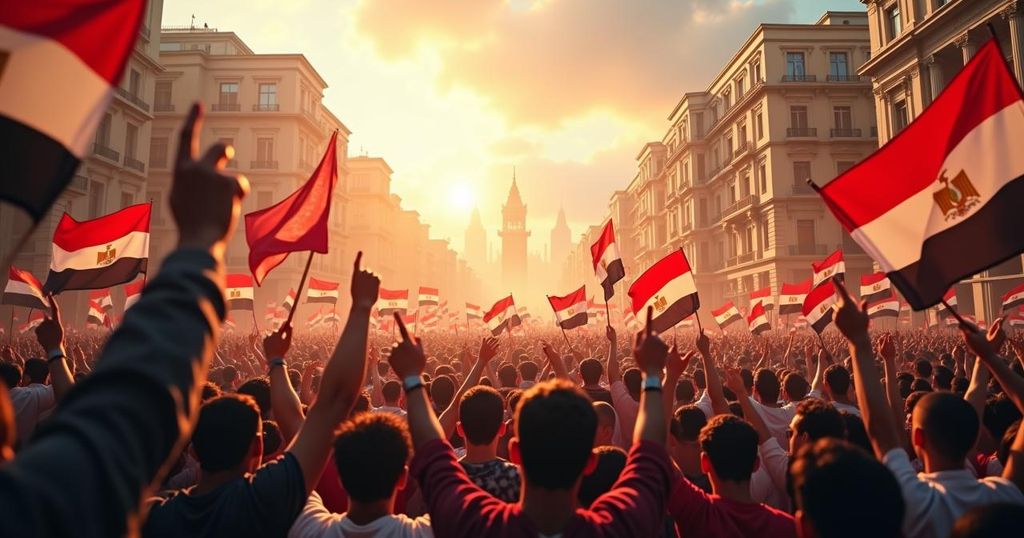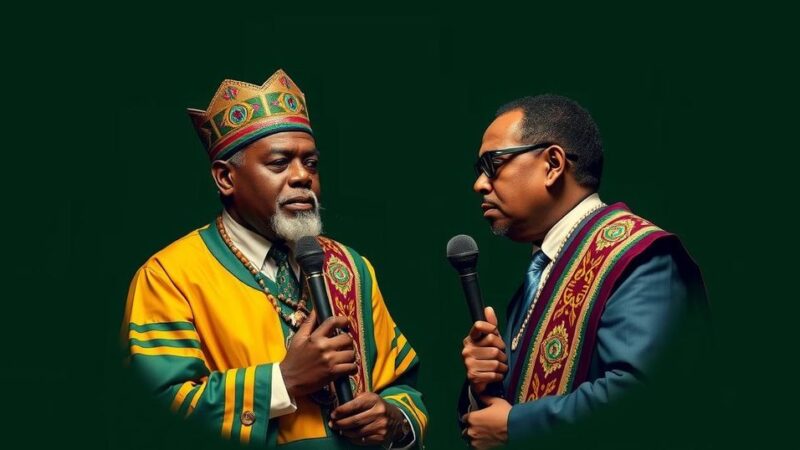The Muslim Brotherhood’s involvement in Egypt’s 2011 uprising led to significant electoral successes but ultimately resulted in a military coup in 2013. Despite initially embracing political participation, the Brotherhood faced severe suppression by the military-led government, including violent crackdowns and designation as a terrorist organization, which fundamentally altered the political landscape in Egypt.
In January 2011, a nonreligious protest movement emerged against President Hosni Mubarak’s regime in Egypt, prompting the Muslim Brotherhood to support demonstrations that led to Mubarak’s resignation in February. Following this political shift, the Muslim Brotherhood, previously limited to underground operations, actively participated in politics, establishing the Freedom and Justice Party to represent their interests. In parliamentary elections from late 2011 to early 2012, the party secured approximately 47 percent of the seats, outperforming their ultraconservative Islamist rival, the Nūr Party, which garnered around 30 percent. However, the question of endorsing a presidential candidate arose as the Brotherhood first denied intentions to field a candidate but later nominated Khairat al-Shater, who was disqualified, leading to Mohammed Morsi stepping in as the Brotherhood’s candidate. Morsi won the presidency in June 2012, succeeding amid ongoing challenges. His tenure was marked by criticism over economic stagnation and governance issues, culminating in mass protests demanding his resignation on the anniversary of his inauguration in June 2013. Subsequently, General Abdel Fattah al-Sisi issued an ultimatum and orchestrated a military coup on July 3, 2013, which ousted Morsi and resulted in arrests of Brotherhood leaders. The subsequent crackdown on the Muslim Brotherhood included violent clashes and arrests, with security forces aggressively dispersing protests that resulted in significant casualties. The organization was designated as a terrorist group following violent incidents, and a broad campaign against its members ensued, including mass trials and substantial sentences for alleged supporters. The political landscape in Egypt thus transitioned from a period of parliamentary success for the Brotherhood to one of suppression and hostility towards their presence.
The Muslim Brotherhood in Egypt, founded in 1928, has evolved from a religious, social movement to a significant political entity. Following the 2011 Arab Spring, the Brotherhood capitalized on the momentum to establish political legitimacy, culminating in their participation in a democratic government post-Mubarak. However, the group faced severe resistance from various opposition forces, which questioned their governance and approach to democracy. The 2013 coup d’état against President Morsi marked a critical moment, leading to a violent crackdown and designation as a terrorist organization, fundamentally altering the political dynamics in Egypt.
The trajectory of the Muslim Brotherhood in Egypt encapsulates the complexities of political Islam within a revolutionary context. Initially experiencing significant electoral success and governance, the group faced a harsh backlash following public discontent and military intervention. The subsequent repression illustrates the volatile nature of political movements in transitional democracies. This period has resulted in a profound shift in Egypt’s political landscape, diminishing the Brotherhood’s influence and leading to a broader crackdown on dissent.
Original Source: www.britannica.com






